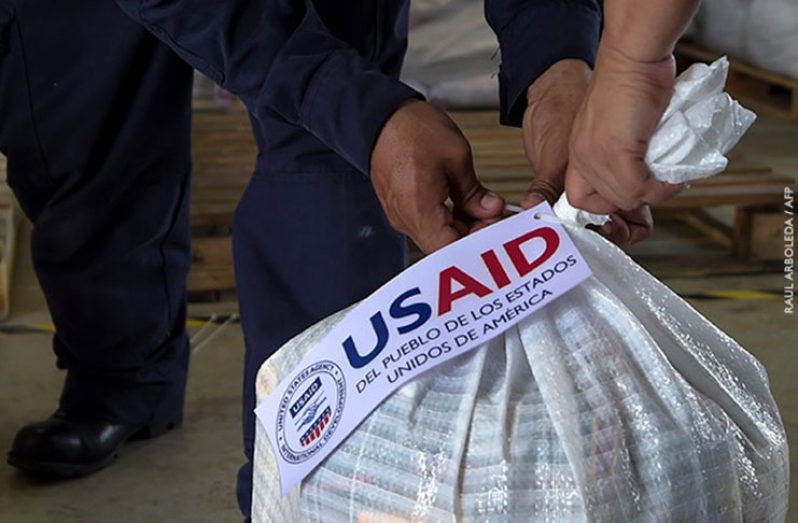ALTHOUGH the figures may have since risen, as of February this year, Guyana hosted approximately 36,400 Venezuelan migrants.
At the same time, the United States Agency for International Development (USAID) reported that a survey of 1100 Venezuelan migrants in Guyana indicates that 17 per cent of that population, which is school-aged, is attending school here.
Although USAID did not differentiate how many persons have stayed permanently and how many came as a means of moving onto another country, the figures are likely to be higher since boatloads of Venezuelans have been coming here this year.
USAID posted on its website its second fact sheet for the year regarding Washington’s response to the issue and the data illustrated the broad efforts of the agency to the blooming migration issue; the agency reported that regional nations continue to adapt to the influx of Venezuelan migrants.
According to USAID, this country’s public healthcare system has been “strained” by the influx of the migrants and this report was attributed to United States Department of State officials who travelled to the western border region of Guyana in late March this year.
With US$550,000 in funding this year, the US will support UN partners in Guyana through activities providing multi-sector assistance to vulnerable Venezuelans, including activities to combat gender-based violence, the report said.
Guyana has been making moves to accommodate the children of re-migrants into the school system here.
Over the past several weeks, an advertisement was published on multiple occasions in the Guyana Chronicle in which the Ministry of Education has made note of an examination which will be conducted on July 25, 2019 for re-migrants, private and public school candidates.
According to the advertisement, re-migrants guardians are required to submit a copy of the children’s travel documents, birth certificates, report booklets and the relevant application form to the Department of Education by July 14, 2019.
USAID said that its partners are working with the Government of Guyana to address education needs among Venezuelans, including launching a safe-school initiative to increase service delivery in host communities.
On the grey side, USAID said that Venezuelans continue to experience anti-migrant sentiment from some host communities and reportedly face heightened risk of sexual exploitation and human trafficking.
As regards the latter, it was one of the grey areas which were pointed out in the 2019 Department of State, Trafficking in Persons report.
In that report, which was released last week, the US said that the Government of Guyana fully meets the minimum standards for the elimination of trafficking and it was noted that the government here continues to demonstrate serious and sustained efforts during the reporting period as Guyana remains on Tier One of the ranking of nations.
However, it was recommended that local authorities should fund specialised victim services, in particular for child, adult males, and Venezuelan victims.
It was noted that the government increased efforts to identify and protect victims of TIP. However, victim assistance remained a concern, especially in areas outside the capital and for Venezuelan, child, and male victims. The report stated that in the face of an increase of Venezuelan migrants, there is need for standard operating procedures (SOPs) to protect the migrants.



.jpg)











